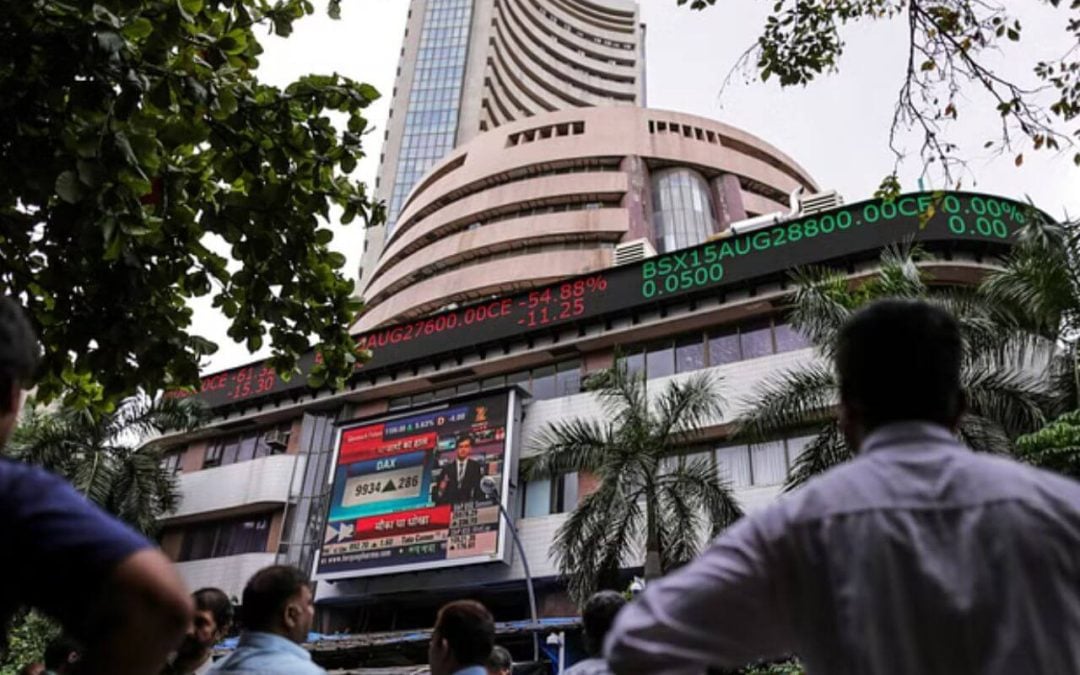Growth stocks are shares in companies that are anticipated to grow at a significantly higher rate than the average market growth. Such stocks are expected to increase their revenues and earnings at a faster pace compared to the overall market or their industry peers.
These stocks typically do not pay dividends, as the companies prefer to reinvest their earnings into the business to fuel further expansion.
Following are three growth stocks that are currently trading up to 26 percent down from their 52-week high:
Solar Industries India Limited
With a market cap of Rs. 98,687 crores, the shares of one of the world’s leading manufacturers of explosives & initiating systems surged by 1.7 percent on BSE to Rs. 10,936.95 during the trading session of Tuesday.
The stock hit its 52-week high at Rs. 13,300 on 11th July, and compared to its current trading price of Rs. 10,813.9, the stock is trading at a discount of nearly 19 percent.
The company has reported a significant growth in revenue from operations, with around a 0.8 percent YoY rise from Rs. 1,682 crores in Q1 FY24 to Rs. 1,695 crores in Q1 FY25. Similarly, the net profit increased by 49 percent YoY from Rs. 202 crores to Rs. 301 crores, over the same period.
The stock has delivered multibagger returns of nearly 109.8 percent in the last one year, and around 60 percent of positive returns year-to-date.
Solar Industries India Limited manufactures a complete range of industrial explosives, explosive initiating devices and high-energy materials for defence applications.
Tata Motors Limited
With a market cap of Rs. 3.31 lakh crores, the shares of a leading global automobile manufacturer moved down by nearly 1.07 percent on BSE to Rs. 918.1 during the trading session of Tuesday.
The stock hit its 52-week high at Rs. 1,179.05 on 30th July, and compared to its current trading price of Rs. 901.45, the stock is trading at a discount of nearly 23 percent.
The company’s revenue from operations stood at Rs. 1,08,048 crores in Q1 FY25, rising by nearly 5.7 percent YoY from Rs. 1,02,236 crores in Q1 FY24, while the net profit grew by 72.4 percent to Rs. 5,692 crores from Rs. 3,301 crores, during the same period.
The stock has delivered positive returns of nearly 45.8 percent in the last one year, as well as around 14 percent returns year-to-date.
Tata Motors Limited is a leading global automobile manufacturer of cars, utility vehicles, pick-ups, trucks, and buses, offering an extensive range of integrated, smart, and e-mobility solutions. It is India’s market leader in commercial vehicles and ranks among the top three in the passenger vehicles market.
Indian Railway Catering and Tourism Corporation Limited
With a market cap of Rs. 68,324 crores, the shares of a Mini-Ratna PSU under the Ministry of Railways moved up by nearly 0.4 percent on BSE to Rs. 860.65 during the trading session of Tuesday.
The stock hit its 52-week high at Rs. 1,148.3 on 22nd May, and compared to its current trading price of Rs. 854.05, the stock is trading at a discount of nearly 26 percent.
The company has reported a significant growth in revenue from operations, with around an 11.7 percent YoY rise from Rs. 1,002 crores in Q1 FY24 to Rs. 1,120 crores in Q1 FY25. Similarly, the net profit increased by 32.8 percent YoY from Rs. 232 crores to Rs. 308 crores, over the same period.
The stock has delivered positive returns of nearly 21.5 percent in the last one year, but around 4.2 percent of negative returns year-to-date.
Incorporated in 1999, IRCTC is the only company authorised by the Indian government to provide online railway tickets, catering services, and packaged drinking water at railway stations and trains in India.
Written by Shivani Singh
Disclaimer

The views and investment tips expressed by investment experts/broking houses/rating agencies on tradebrains.in are their own, and not that of the website or its management. Investing in equities poses a risk of financial losses. Investors must therefore exercise due caution while investing or trading in stocks. Dailyraven Technologies or the author are not liable for any losses caused as a result of the decision based on this article. Please consult your investment advisor before investing.





